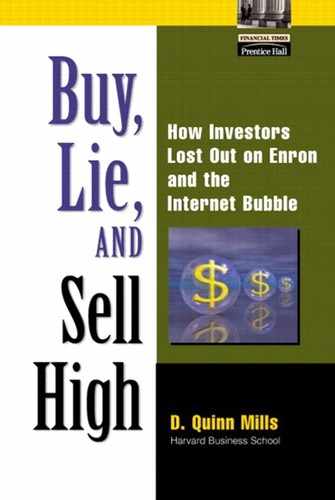A List of the Economic Consequences of the Bubble
The world economy has been tipped into recession.
The aftermath of the financial bubble is that high technology is starved for capital today. The Fed's August 2001 survey of senior bank loan officers found that banks have limited exposure to high tech and are tightening lending standards to high tech firms more than to other companies.[105]
Nor is much venture money available—new early stage commitments to entrepreneurial firms by venture funds are about one-tenth what they were during the bubble. The bad crowded out much that was good—start-ups following the tried and true path of get-it-right-first are now denied capital as a result of the fiascos brought on by the get-big-fast strategies championed during the bubble by the venture firms and investment banks. Think, for example, of what better entrepreneurs could have done to build viable companies with the $100 million squandered by Garden.com, with the $30 or so million wasted on Edupoint, with the almost billion dollars consumed by Webvan, or with the multibillions spent by Global Crossing. Further, because of the rapidity of the downturn, some good technologies are likely to be orphaned forever. The capital markets have abandoned promising innovations as the financial markets overshot on the down side. First round venture funding for entrepreneurs in the second quarter of 2001 was only $1 billion, down 87 percent from a year ago.[106]
The capital markets wasted vast amounts of investment dollars, lessening, not increasing, intelligent business investment. This was especially true in the telecom arena, in which much more money, largely in the form of junk bonds and coming from large institutional investors, was wasted.
The markets often picked the wrong companies to finance, and starved better companies of capital. The Internet companies used valuable resources that could have been more efficiently allocated elsewhere in the economy. The people who worked at failed Internet firms could have spent their time and energy creating lasting value in other endeavors, and the capital that funded the dot-coms and telecoms could have been ploughed into viable, lasting companies that would have benefited the overall economy.
The bubble undermined incentives to save. People who watched their savings fly out the window are reluctant to have the same thing happen again.
The bubble undermined good management because the volatility of share prices drove option values under water and undermined incentives. Yet Wall Street and academics strongly support incentive stock options as a key tool of motivation for employees.
